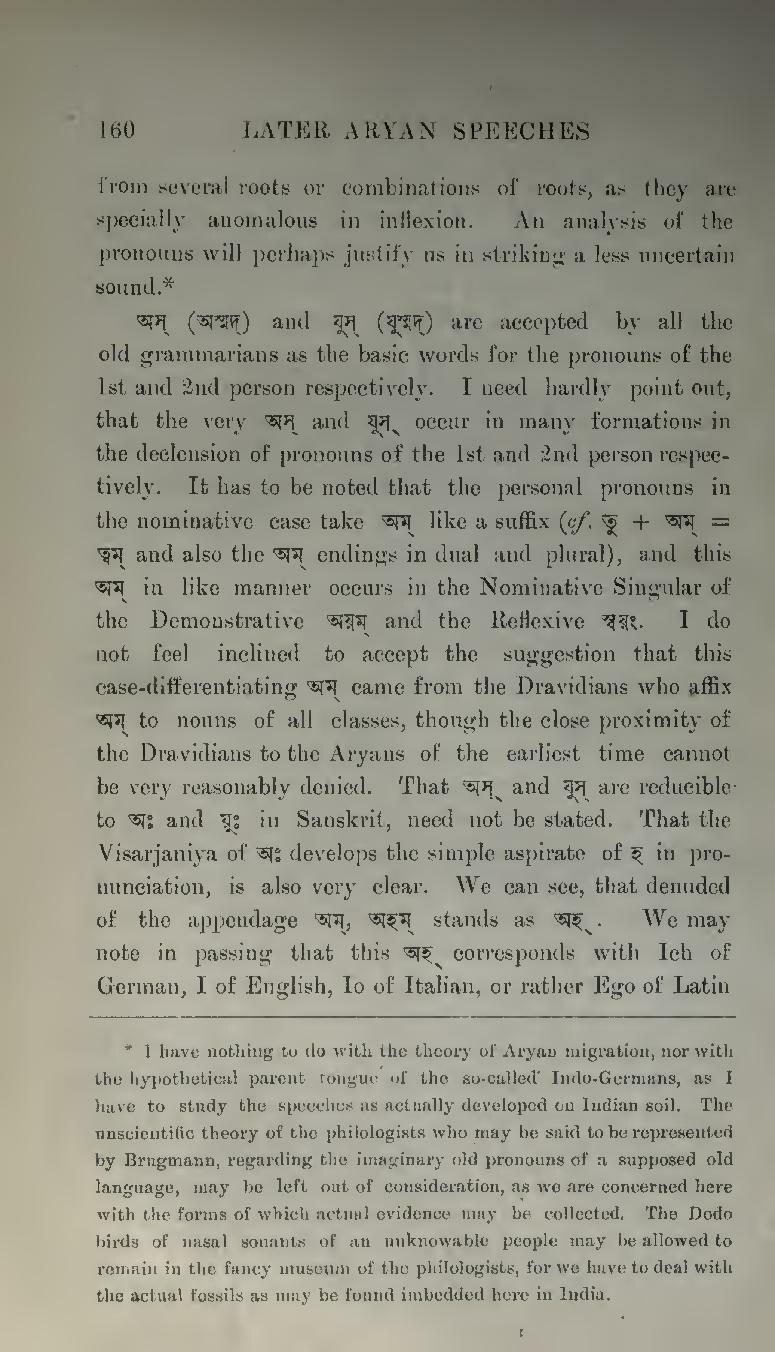from several roots or combinations of roots, as they are specially anomalous in inflexion. An analysis of the pronouns will perhaps justify us in striking a less uncertain sound.[1]
অস্ (অস্মদ্) and যুস্ (যুস্মদ্) are accepted by all the old grammarians as the basic words for the pronouns of the 1st and 2nd person respectively. I need hardly point out, that the very অস্ and যুস্ occur in many formations in the declension of pronouns of the 1st and 2nd person respectively. It has to be noted that the personal pronouns in the nominative case take অম্ like a suffix (cf. তু + অম্ = ত্বম্ and also the অম্ endings in dual and plural), and this অম্ in like manner occurs in the Nominative Singular of the Demonstrative অয়ম্ and the Reflexive স্বয়ং. I do not feel inclined to accept the suggestion that this case-differentiating অম্ came from the Dravidians who affix অম্ to nouns of all classes, though the close proximity of the Dravidians to the Aryans of the earliest time cannot be very reasonably denied. That অস্ and যুস্ are reducible to অঃ and য়ুঃ in Sanskrit, need not be stated. That the Visarjaniya of অঃ develops the simple aspirate of হ in pronunciation, is also very clear. We can see, that denuded of the appendage অম্, অহম্ stands as অহ্. We may note in passing that this অহ্ corresponds with Ich of German, I of English, Io of Italian, or rather Ego of Latin
- ↑ I have nothing to do with the theory of Aryan migration, nor with the hypothetical parent tongue of the no-called Indo-Germans, as I have to study the speeches as actually developed on Indian soil. The unscientific theory of the philologists who may be said to be represented by Brugmann, regarding the imaginary old pronouns of a supposed old language, may be left out of consideration, as we are concerned here with the forms of which actual evidence may be collected. The Dodo birds of nasal sonants of an unknowable people may be allowed to remain in the fancy museum of the philologists, for we have to deal with the actual fossils as may be found imbedded here in India.
